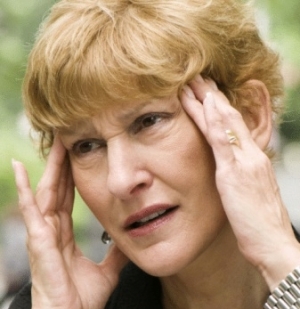Just as in case of menopause, not all women have the same symptoms. The relationship between the lupus symptoms in women and the menopause symptoms is that both of them are considered to be system-wide inflammations.
Information about the symptoms of lupus in women
In order to make an accurate diagnosis of lupus in case of women we have to consider all the symptoms as a whole. This way we can find the right treatment. The causes may include hormonal, gastrointestinal, detox or adrenal imbalances or even all of the above.
Unique approach
 About the same thing is true for menopause as well. Just as in case of women’s lupus symptoms, in this case also we have to consider all the factors to restore wellness and balance.
About the same thing is true for menopause as well. Just as in case of women’s lupus symptoms, in this case also we have to consider all the factors to restore wellness and balance.
There is no treatment method that fits everybody. Nonetheless this doesn’t mean that the patients should follow their treatment.
The treatment options used in case of the lupus symptoms in women are part of a standard toolkit. Nonetheless it may be best to have an integrative approach. In both cases the symptoms flare up and then cool down.
Also these symptoms could range from being very mild to severe. In the same time the symptoms could also suddenly appear or disappear.
Can menopause aid lupus?
It is interesting to know that the patients suffering from the signs of lupus in women seem to get better before menopause.
After the onset of menopause the symptoms tend to get milder. Some of the specialists say that this improvement could be attributed to a decrease of estrogen.
On the other hand it is also possible that the lupus symptoms in women simply get better because of the aging process. This is what shows the biggest difference between menopause and lupus: age. The symptoms of lupus usually appear between the ages of 15 and 45. This doesn’t mean that they can’t appear during menopause, but this happens quite rarely.
It looks like there is one good thing about the women’s lupus signs: the patients are already used to managing the symptoms caused by hormonal imbalances. Menopausal women deal with problems of this kind for a shorter period of time and they find them more difficult to handle.
The most common connection between the lupus symptoms in women and menopause is that apparently they are both linked to the sex hormones. The majority of the lupus patients are women and the symptoms seem to get better during pregnancy and menopause. This is why we can say that the symptoms have something to do with the different hormone levels.
The hormones that have a word to say regarding warning signs of women’s lupus include progesterone, estrogen, testosterone and DHEA. The unpleasant symptoms of both lupus and menopause are caused by the fluctuating levels of estrogen.
As you can see, the lupus symptoms in women are something like the symptoms of menopause. Nonetheless it is quite difficult to mistake one problem for the other. Still you have to make sure that you made the right diagnosis and for this you should see a doctor.






